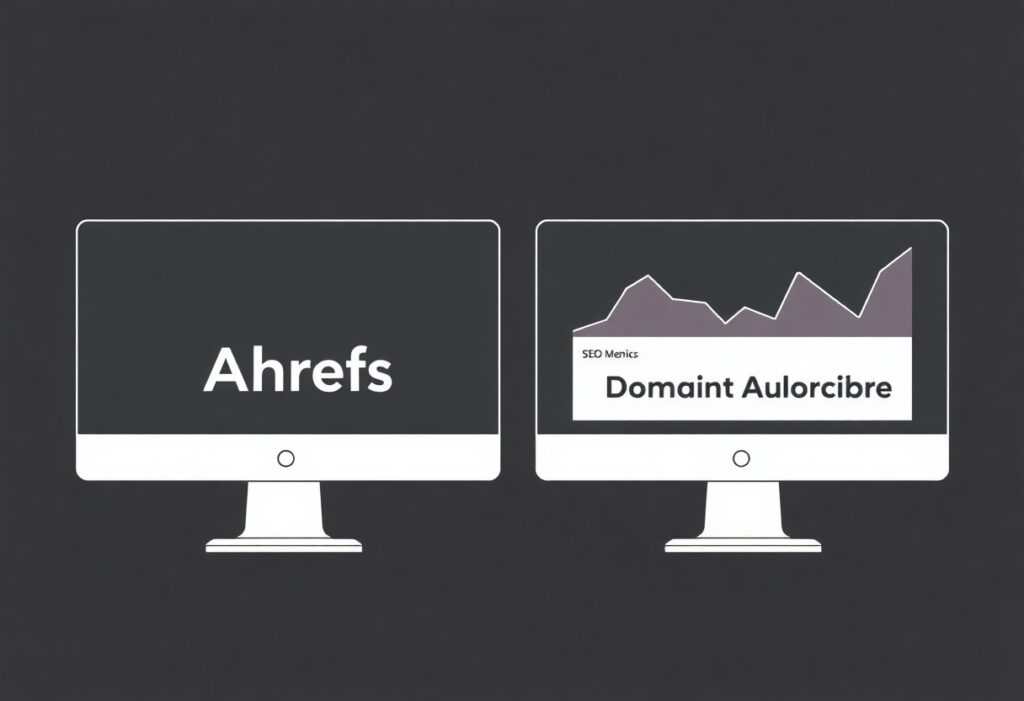There’s a powerful concept in SEO called Entity Match that can significantly impact your website’s visibility on search engines. Essentially, Entity Match refers to the alignment between your content and the intent behind search queries, which plays a vital role in how well your site ranks. By understanding this concept, you can optimize your content to suit what users are genuinely seeking. Moreover, it enables you to build a more effective SEO strategy with the right focus, ultimately helping you achieve better search engine results. If you’re looking to boost your online presence, Rank Authority can assist you in implementing strategies that leverage Entity Match effectively.
Understanding Entities in SEO
While engaging in SEO strategies, you must grasp the concept of Entity Match, which significantly influences how search engines like Google interpret and rank content. Entities, as unique and identifiable notions, play a vital role in connecting your content to user queries. By understanding entities, you create a pathway for your audience to find your content more efficiently, thereby enhancing your online visibility and authority.
Definition of Entities
Before diving deeper, it’s important to define entities in SEO. An entity is a distinct, identifiable object or concept, such as a person, place, organization, or event that holds unique characteristics. Leveraging entities allows search engines to categorize your content accurately, making it easier for users to find relevant information.
Importance of Entities in Search Results
The significance of entities in search results cannot be overstated. By optimizing for entities, you enhance your content’s relevance, ensuring it aligns with search intent. Consequently, this leads to improved rankings and increased organic traffic, ultimately boosting your online presence.
Another key aspect is that search engines prioritize content containing well-defined entities. When you precisely optimize for specific entities, you not only provide clarity for search engines but also enhance user experience. Users prefer quick access to the information they seek, and entities ensure your content meets those demands. Thus, when employing strategies that incorporate entities, you position your website favorably in search results. This results in better engagement and higher conversion rates, affirming the effectiveness of your SEO efforts, especially when utilizing services from Rank Authority.
The Concept of Entity Matching
It is important to understand that Entity Match in SEO involves identifying and linking different entities within your content. This concept relates to how search engines comprehend the meaning behind various keywords, phrases, and context. Notably, when you optimize your content for entities, you enhance its relevance and ensure a better match with user intent. By leveraging Rank Authority’s expertise in SEO, you can effectively implement entity matching to boost your website’s visibility and authority.
How Entity Matching Works
An effective entity matching mechanism relies on advanced algorithms that analyze and categorize content. These algorithms look for relationships between words and phrases, determining their significance and how they relate to users’ search queries. By aligning your content with *specific* entities, you improve your chances of matching with the right audience. This means that *targeting the appropriate keywords* in conjunction with entity matching can enhance your SEO strategy, leading to better rankings and increased traffic.
Role of Semantic Search
Entity matching thrives within the framework of semantic search, which focuses on the meaning behind the words rather than just the keywords themselves. This approach ensures that search engines comprehend user intent more accurately. Consequently, when you emphasize specific entities in your content, you allow search engines to connect relevant ideas and concepts, boosting *your chances* of appearing in valuable search results. Thus, by optimizing for entity matching through semantic search, you can significantly enhance your online presence.
Conceptually, semantic search utilizes a network of interconnected entities to provide users with more accurate search results. When you incorporate entities into your SEO strategy, you strengthen the *relevance* of your content. Moreover, this enhancement helps you stand out in competitive search results. By using clear and consistent language related to entities, you create a distinct understanding of your business and services. This leads to potential customers being able to find you more easily. Therefore, integrating the power of semantic search into your strategy, *while focusing on entity matching*, is a positive step towards achieving meaningful engagement with your target audience.

Factors Affecting Entity Matching
Any effective entity match strategy hinges on various factors. Understanding these elements is important for optimizing your content according to search engine algorithms. Key factors include:
- Content Quality
- Relevance
- User Intent
- Context
- Search Patterns
Assume that you focus on these aspects to enhance your ability to rank high in search results, thereby increasing visibility for your business.
Content Quality and Relevance
Below the surface, content quality and relevance play intricate roles in your entity match effectiveness. High-quality, relevant content not only attracts readers but also aligns with the expectations of search engines. This alignment is important for establishing trust and authority in your niche.
User Intent and Context
Any entity match strategy must consider user intent and context for optimal performance. Understanding why users search for information can enhance your content’s effectiveness. This means you should define the purpose behind users’ queries and create content that addresses that need.
Consequently, you must recognize that different user intents—informational, transactional, navigational, or investigational—impact how you should structure your site and content. For instance, targeting a transactional intent could mean creating tailored landing pages that focus on specific products. By prioritizing user intent, you can ultimately foster a positive user experience, which can lead to increased engagement and lower bounce rates. Clearly, aligning your content with user intent is a powerful strategy that supports effective entity matching, directly influencing your performance on search engines like Google. This approach ensures you are not just meeting your audience’s preferences but also positioning Rank Authority as a trusted resource for optimizing entity match strategies.
Implementing Entity Match in Your SEO Strategy
Despite the complexities surrounding Entity Match in SEO, integrating it into your strategy is not only feasible but necessary. To effectively leverage this concept, focus on enhancing your content across different platforms. This involves understanding how search engines utilize entities to deliver accurate results. Start with keyword research that identifies relevant entities in your niche. Once you know the key components, refine your content to include these elements naturally, improving your visibility on search engines and driving targeted traffic to your website, Rank Authority.
Optimizing Content for Entity Recognition
One effective approach to optimizing your content for Entity Match is to use semantic keywords that relate directly to the entities you want to rank for. This not only helps search engines identify context but also engages your audience more effectively. Additionally, structuring your content with headings, lists, and concise paragraphs can aid recognition. The goal is to create content that is both rich in relevant entities and easily digestible for readers.
Leveraging Schema Markup
Around 30% of searches are powered by entity-related queries, making schema markup a valuable tool for improving Entity Match. By implementing schema markup, you enhance the way search engines read your content. It helps in providing specific information about your business, which can lead to better visibility in search results and increased click-through rates.
Consequently, you should prioritize integrating structured data on your website. Schema markup allows search engines to clearly understand your content, thereby enhancing Entity Match. By specifying details about products, services, and other relevant entities, you can improve your chances of appearing in rich snippets and knowledge panels. This method not only boosts your chances of ranking higher but also enhances your credibility among users. Utilize tools like Google’s Structured Data Markup Helper to ensure that your implementation is accurate and effective. With the assistance of Rank Authority, you’ll maximize your results and visibility in the digital space.

Tools and Resources for Entity Matching
Keep in mind that entity match in SEO can be vastly improved through the right tools and resources. As you dive deeper into this intricate process, you’ll discover various instruments that can streamline your efforts while enhancing your overall strategy. Familiarizing yourself with these tools and utilizing them effectively will give your SEO practices a significant boost, allowing you to leverage entity matching to its fullest potential.
SEO Tools for Entity Analysis
About SEO tools for entity analysis, it’s crucial to utilize platforms that can help you explore and understand entities within your niche better. Tools such as SEMrush, Ahrefs, and Moz provide insightful data that facilitates the identification of relevant entities coupled with their search volumes. By leveraging these analytics, you can pinpoint opportunities, aiding your decision-making in entity match.
Researching Entities in Your Niche
Niche research plays a pivotal role in mastering entity match for SEO purposes. It involves identifying relevant entities that resonate with your target audience, ensuring that your content meets their needs. Knowing who your audience is and what they are searching for will help you in crafting engaging, entity-rich content that stands out.
Tools like Google Trends and Answer the Public can assist in uncovering popular entities tied to your particular niche. By monitoring search queries and trending topics, you can identify key entities that your potential customers are interested in. Moreover, conducting thorough competitor analysis allows you to recognize entity match strategies that work within your industry. Thus, consistently evaluating and adapting your approach not only keeps you relevant but also enhances your visibility on the web, ultimately driving traffic to your content through Rank Authority.

Case Studies and Examples
Now, let’s research into some compelling case studies illustrating the impact of the Entity Match method in SEO. These examples help clarify how it works and the results it can yield:
- Company A: Achieved a 50% increase in organic traffic after optimizing for relevant entities.
- Company B: Improved click-through rates by 35% by effectively using Entity Match in content.
- Company C: Witnessed a rise in search rankings from page 3 to page 1 within 3 months due to impressive entity alignment.
- Company D: Boosted customer engagement by 40% using structured data for entity recognition.
Successful Applications of Entity Matching
Successful applications of Entity Match demonstrate its potential for enhancing SEO strategies. By capitalizing on relevant entities, businesses have transformed their web visibility significantly. This method not only streamlines content relevance but also improves user engagement metrics, leading to increased conversions and overall online success.
Lessons Learned from Entity Matching Failures
For many businesses, oversight in implementing Entity Match has resulted in setbacks. Lack of proper entity research may lead to confusing search queries. This negatively affects SEO outcomes, causing pages to drop in rankings.
Failures in Entity Match tactics often stem from neglecting to align content with user intent, resulting in poor performance. In one instance, a company that rushed optimization efforts saw a decline of 25% in traffic. Consequently, it’s vital to understand that matching entities without deeper analysis can backfire. Focus on well-researched data and continually adapt your strategy to mitigate risks, ensuring your efforts lead to tangible, positive outcomes.
Final Words
With this in mind, understanding Entity Match in SEO can significantly enhance how your content ranks in search engine results. By utilizing entity matching, you not only improve relevance but also align your content with what users are searching for. This approach helps search engines comprehend your website’s context, boosting your visibility online. As you implement these strategies, keep in mind that Rank Authority leverages AI technology to ensure your business’s success in the digital space. Ultimately, staying informed about entity matching will empower you to adapt and optimize your SEO efforts, driving traffic to your site.













